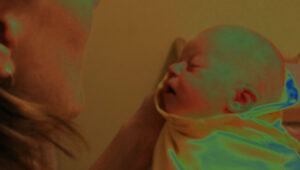
The very first chapter of Paula Prober’s (2016) Your Rainforest Mind is entitled “Too Much: Intensity, Sensitivity, Empathy”.
There are a ton of important ideas here to explore, but for now I’ll focus on the issue of heightened bodily sensitivity, and connect it back to what it’s been like learning to parent for the last 12+ years.
First, an explanation. As Prober writes of Rain Forest Minds (RFMs):
“… your perception, awareness, and sensitivities are turned up high. This can apply to sounds, textures, smells, chemicals, tastes, colors, images, and air quality. You may hear sounds that others miss or not be able to wear particular clothes due to their texture” (p. 18).
In her follow-up “field guild” for RFMs, Prober (2019) adds:
“Your sensitivities may be criticized or pathologized by family members, teachers, and therapists. Not knowing that a finely tuned nervous system and a body-mind that perceives more on multiple levels is part of your rainforest mind might lead you to believe that something is seriously wrong with you” (p. 36).
Yes, exactly, Paula. That’s what happened.
I had read Elaine Aron’s (1997) The Highly Sensitive Person years earlier, so fortunately already knew about this concept – but it was nice to see it reiterated so boldly in Prober’s book.
Okay – where to begin?
In hindsight, life was definitely too much (sensorily speaking) for me as a kid, though I didn’t realize this at the time. I wasn’t shy or socially anxious, yet I struggled with feeling the “too muchness” of being with people for too long. I remember needing to sneak away to read a book on my own during sleep-overs with friends; escaping into the bathroom during play-dates to decompress; and occasionally choosing to simply stay at home rather than go out to social and/or high sensory events.
I cried “too much” in elementary school, to the point where I was chastised by two of my less-tolerant teachers and made to feel ashamed of myself for this tendency. I slept with a stuffie (an old Norwegian “teddy duck” I called bamse) for years.
I (secretly, only at home) sucked my thumb until I was 12 – but this deeply entrenched habit suddenly went away when it was no longer soothing, and I turned instead to the lure of dieting, which provided temporarily bodily control but very quickly spiraled into an eating disorder I dealt with for my entire teenage-hood. (That topic merits additional blog posts, and was FILLED with sensory challenges of its own.)
Suffice it to say I simply didn’t feel okay in my body as a child or teen, unless I was escaping into my mind or engaged in very carefully selected exercise. (For instance, I loved bicycling out on city streets in the fresh air early in the morning – like, at 5:30 a.m., before many people were out.)
I didn’t realize until I became a parent and started reading about Sensory Processing Disorder (actually, listening to a podcast about it on Debbie Reber’s awesome Tilt Parenting site) that I realized I may be able to retroactively diagnose myself in this way, too.
When I became pregnant with my first child at the age of 33, I experienced heightened sensory sensitivity – primarily persistent nausea (I ended up taking medication for this) and deep exhaustion. I resisted getting an epidural while giving birth, which led to a physical experience more painful than anything I’d ever dealt with before in my life.
(I say this not to state the obvious, but rather to say that I’ll bet highly-sensitive people have a harder time with childbirth in general. Many moms I’ve spoken with acknowledge how painful it is – yes, of course – but don’t seem to have experienced the physical pain as acutely or in the same way as I did.)
Having a newborn – as miraculous as this was! – brought with it an entirely new set of sensory challenges, ones I couldn’t really share openly given the taboo of complaining about being lucky enough to have a child.
With that said, the biggest challenges I faced were the following:
1) Suddenly being denied anything close to consistent sleep (WTF??!!);
2) Becoming overly vigilant (naturally enough) to the potential sound of a baby crying or fussing; and
3) Feeling every second of milk filling up my breasts. (I eventually got mastitis, which became perhaps the second-most painful thing I could imagine at that time.)
Meanwhile, my oldest child C suffered the most out of all three of my kids as an infant: she was diagnosed with GERD within a couple of weeks of being born (she threw up everything she ate until we got her medication), and was very clearly physically uncomfortable a lot of the time, no matter how much comfort we tried to give her. That didn’t make life easier for any of us, poor thing.
I ended up stopping breastfeeding far sooner than I anticipated or wanted, simply to stop “feeling so much” in my body and get some sleep. My husband and I decided this was more important to our collective sanity than the potential benefits of breast-milk. Thankfully, C absolutely loved being fed from a bottle; she took to it as naturally as you could hope. (You could say she was gifted at it – ha.)
Meanwhile, I began struggling with insomnia challenges that persist to this day. (I was lucky enough not to deal with this as a child, so I know it’s a remnant of parenting.) With the birth of each new child, I became more familiarized with the physical sensations, but it never became less exhausting.
(Again, I have many parent-friends who simply didn’t feel the same way when caring for newborns, so I’m comfortable attributing this perception to my hyper-sensitivity. They were all “new-mom tired”, of course – but not bone-achingly exhausted and unable to get to sleep the way I was.)
Now that I’m parenting three kids who also have strong “sensory needs” (both avoidant and seeking), I’m able to look back at my own childhood, teenage, and parenting experiences from a new lens of compassion. As Prober (2019) recommends in her field guild for RFMS:
“If you have lived for years thinking something was wrong with you because of your sensitivities and intensities, it may take time for a new, positive identity to sink in and take hold” (p. 34).
That’s definitely been the case for me – but I’m happy to say I’m slowly making peace, finding acceptance, and learning effective ways to cope.
References:
- Aron, E. (1997). The highly sensitive person: How to thrive when the world overwhelms you. Random House.
- Prober, P. (2016). Your rainforest mind: A guide to the well-being of gifted adults and youth. Luminare Press.
- Prober, P. (2019). Journey into your rainforest mind: A field guide for gifted adults and teens, book lovers, overthinkers, geeks, sensitives, brainiacs, intuitives, procrastinators, and perfectionists. Luminare Press.
Copyright © 2020 by HalfoftheTruth.org. Please feel free to share with attribution.
